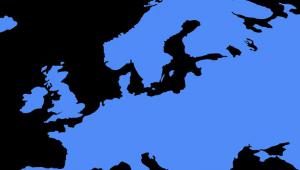A UN Department of Economic and Social Affairs report has pointed to weakened prospects for growth in all major developed economies and most developing regions.
However, the assessment appears to be at odds with preliminary forecasts by the OECD this week pointing to growing real GDP among member countries in the first quarter of this year.
In its mid-year World Economic Situation and Prospects report, UN economists have revised downwards forecasts they made in January to predict growth for 2019 of a moderate 2.7% – markedly below the 3.4% of 2018.
Their concerns bear out predictions they made at the launch of the UN’s main annual report in January which warned of “risks on the horizon”.
DESA has also warned that if trade tensions escalate further, the effects of climate change accelerate, or there is a sudden deterioration in financial conditions, the slowdown could be sharper or more prolonged.
It says this spells bad news for efforts to implement the UN’s 2030 Agenda for sustainable development setting targets to end extreme poverty while protecting the environment.
“It is increasingly clear that policies to promote sustainable development will need to look beyond GDP growth and identify new and more robust measures of economic performance that appropriately reflect the costs of inequality, insecurity and climate change,” Elliot Harris, UN Chief Economist and Assistant Secretary-General for Economic Development, said in a statement.
However, provisional OECD estimates released this week indicated that GDP growth picked up strongly to 0.6% among its member countries in the first quarter of 2019 – double the 0.3% rate of the previous quarter.
Growth accelerated markedly in Germany (to 0.4% after being at 0.0% in the previous quarter), Italy (0.2% from minus 0.1%), the United Kingdom (0.5% from 0.2%) and the United States (0.8% from 0.5%).
Growth also picked up marginally in Japan (0.5% from 0.4%) and was stable in France (at 0.3% for the third consecutive quarter).
OECD economists say GDP has also grown in the European Union and the euro area (to 0.5% and 0.4%, respectively) and year-on-year GDP growth for the OECD area increased marginally to 1.9% from 1.8% in the previous quarter.
While the two perspectives appear to provide contradictory pictures of global prospects, they may be highlighting a growing disparity between the impact of trade tensions on different economies.
The UN points out that developing countries are likely to be hit particularly hard by a slowdown, particularly those that rely heavily on markets affected by additional tariffs and retaliatory measures in the trade war unfolding between the US and China.














